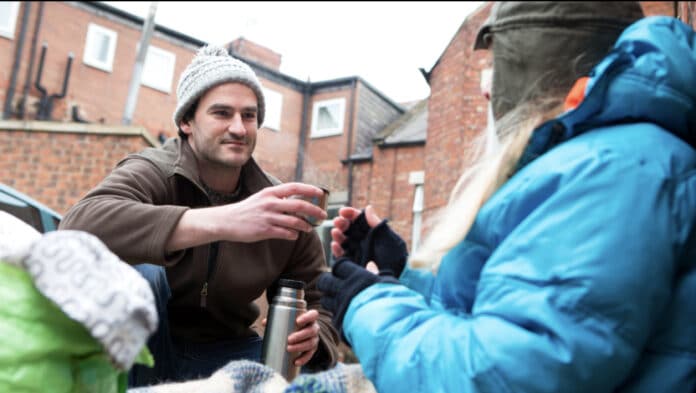| In a new report out today (to mark World Homeless Day on 10 October), Healthwatch Dorset shines a spotlight on the health and care needs of people who are homeless and the challenges they face when trying to access vital care and support, such as dental care and end of life care (see report for case studies). The report will be used by the Care Quality Commission (CQC) to guide its work tackling inequalities in health and social care across the country by improving access to services, patient experience and health outcomes for everyone. Healthwatch Dorset talked to 16 people who are currently homeless, at two homeless support groups, HealthBus in Bournemouth and Soul Food in Weymouth. They asked people about their experiences of being homeless and using health and social care services, and about the challenges they face and the changes they would like to see to make it easier to get the care they need. They also asked people how health and care services could communicate more effectively with the homeless community. What’s it like to be homeless? • People said that being homeless made them feel lonely and isolated, and at times, very frightened and scared for their safety. What health and care services do homeless people need? • Nearly everyone said that they desperately need to see a dentist. • Many said they need support from drug and alcohol services, and community mental health services. What barriers and challenges do homeless people face when trying to use health and care services? • People said there is a lack of information, so it takes longer than needed to get care and support. • Those who have mobility issues cannot afford transport to services, so this is a significant barrier to getting care. • People are unable to access online or phone appointments because they don’t have the technology to do this. What changes might improve access to services for people who are homeless? • People said they would like more information about the health and care services that are available to support homeless people (for example, Dentaid). Many were not informed about these services and had to learn from others who are homeless. What do people expect from health and social care services? • Most people said they expect to be listened to and treated with respect, but many said this was not their experience. How could the CQC and other services improve how they communicate and engage with the homeless community? • Everyone said that they would prefer, and feel most comfortable with, face-to-face communication and engagement. • Nobody had heard of the CQC, and most people had never been asked to share their feedback by anyone other than Healthwatch Dorset. Announcing the report, Lucie Cribb, Healthwatch Dorset Engagement Officer, said: “The views and experiences of people who are homeless often go unheard, and yet it is only by asking them to share their feedback that services can truly understand how to care and support them effectively. Through this work, we have highlighted some of the difficulties and inequalities that homeless people face when trying to use the health and care services that so many of us take for granted. “We have also shown that many people who are homeless are happy to share their stories and feedback to help improve health and care services. However, it is important to use the right approach, engaging face to face in the community, building trust and respect, and making sure that people’s feedback is heard and acted upon. Our thanks go everyone who talked so openly to us about their experiences, and to HealthBus and Soul Food or their support.” Ellen Fernandez, Public Engagement and Insight, Care Quality Commission said: “Healthwatch Dorset is one of seven local Healthwatch commissioned by the CQC to engage with seldom heard communities across England. This includes people with protected characteristics, such as those who have experience of homelessness. Healthwatch Dorset has helped the CQC to gather rich and valuable insight about the needs and challenges of people who are homeless and trying to access health and social care services and support. This will help to shape the CQC’s regulatory work to promote better access to services, and to improve patient experiences and health outcomes for everyone.” Read the full Healthwatch Dorset report, which includes case studies: Promoting the voices of homeless communities in Dorset – Working with the Care Quality Commission (CQC) to tackle inequalities in health and social care. You can get in touch with Healthwatch Dorset to share your views and experiences of any local health and social care service, by visiting their website www.healthwatchdorset.co.uk/talk-to-us/, by phone 0300 111 0102 or email [email protected]. |
PLEASE SUPPORT US FOR JUST £2 A MONTH
To report this post you need to login first.







